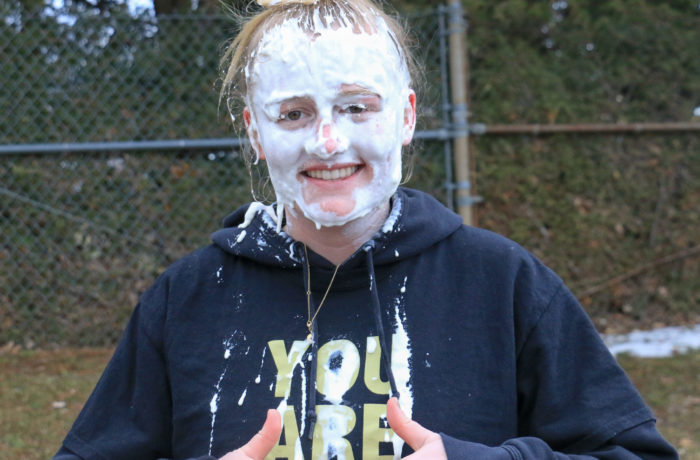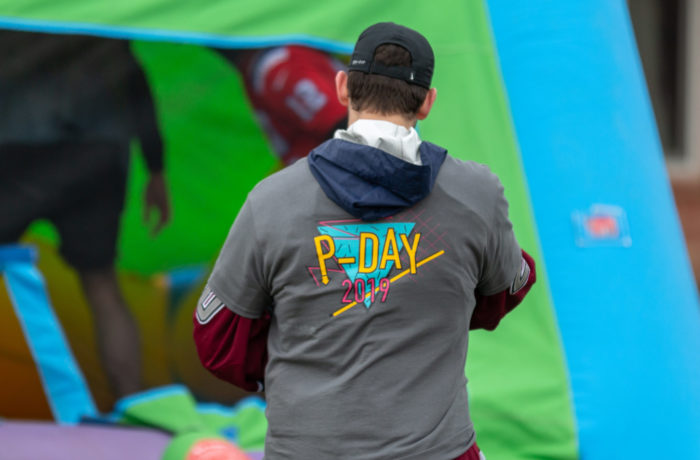By Allie Brown
Planning for a new curriculum has been underway for months. On March 7, St. Michael’s students received an email from Dean Jeffrey Ayres stating that the Liberal Studies Curriculum had been revised under the recommendation of the Curriculum and Educational Planning Committee (CEPC).
“These new changes are temporary and will be followed by a full curriculum revision in the next year or two,” said Karen Talentino, vice president for academic affairs.Under the recent revision current first years, sophomores and juniors will no longer be required to fulfill the experiential learning requirement. They may also receive a waiver for any one of the LSC courses except for First Year Seminar, the first semester of philosophy, the first semester of religious studies or the first semester of foreign language.
“I knew it was coming, but I wasn’t super thrilled about the fact they didn’t give us notice. I took my science LSC in the fall and that’s the one I would have gotten rid of,” Caitlin D’Amore,18. “I think it’s useful for people who are taking bio classes or chem classes and don’t have a lot of wiggle room in their schedule,”she continued.
The Reasoning
“The main purpose was educational, but a secondary and equally important one was to try to save some resources, save some money,” Talentino said of the decision to allow students to waive one LSC requirement. “What we’re trying to shoot for is to develop a sized curriculum that is correlated with the size of the student body,” she said. Adjunct faculty are paid by the course, and reducing the number of LSC courses offered, which are often taught by adjunct faculty, will cut costs, said Talentino.
The experiential learning requirement also strained the college’s resources. David Barrowclough, assistant dean and registrar, said that because the experiential learning requirement wasn’t related to a specific course, he and the staff would have to print out every student’s course evaluation and check them by hand. “The more time I’m held up processing program evaluations looking for experiential learning, that’s time I’m not meeting with students,” he said. With extra time he has next semester, he plans to do more outreach and graduation planning with students.
Curriculum Changes
“The LSC’s we currently have, aside from the first year seminar, is entirely a distribution model, which means it does not matter when in your college career you take these different classes,” said Patrick Walsh, associate professor of economics and member of the Curriculum and Educational Policy Committee (CEPC). There are two potential models in development, and toward a core model, Walsh said. He also mentioned, “Depending on how you present the class and grade the assignments it could be way too easy for the seniors or way too hard for the freshmen.”
The faculty will vote this week on which of the two models should be developed in a full proposal by the CEPC. If it is approved by the Faculty Assembly in May it will move on to the Board of wwTrustees. As of now, there is not a set date for the new LSC to go into effect.
Experiential Learning
According to the National Survey of Student Engagement, Saint Michael’s students are more active in experiential learning than some similar college and universities, said Wagner, who coordinates the survey at Saint Michael’s. “Many students are doing two or more (experiences). That’s where we really distinguish ourselves,” she continued.
It is not yet clear how experiential learning will be incorporated into the new LSC. Talentino said departments and majors might set individual requirements for experiential learning. However, the faculty decided to remove the experiential learning from the LSC not because it wasn’t valuable, but because they wanted to improve student experiences.
“It wasn’t embedding that the way we wanted. At least for some students, it became a check box, rather than an integral part of their education,” said Walsh. In the future Saint Michael’s may offer new ways of recognizing experiential learning. Talentino said that academic affairs is looking into awarding badges and certificates.
Kellie Campbell, associate director of Information Technology, who is helping academic affairs in the early stages of researching badges and certificate programs said, “that badges and certificates can help demonstrate to employers that students are gaining these skills that will apply to (their) profession through more experience on the student life and residential side.”
Moving Forward
This past Friday, the faculty voted to hold a vote on the two different structures of LSC’s. Their next vote takes place at the faculty assembly in May. If the changes to the curriculum are approved, the new LSC requirements will be put into effect for students entering in this upcoming fall semester.
To turn around and present a curriculum in a few weeks the CEPC has been collecting input from faculty members. The committee will be using ideas from that to write the new curriculum.
“We have gotten a number of proposals from a number of different faculty members,” said Walsh. “We will be taking all of the input and suggestions and informal proposals we have been receiving and find the commonalities of those things. We want to take that content and fit them into the structure that was voted on.”


